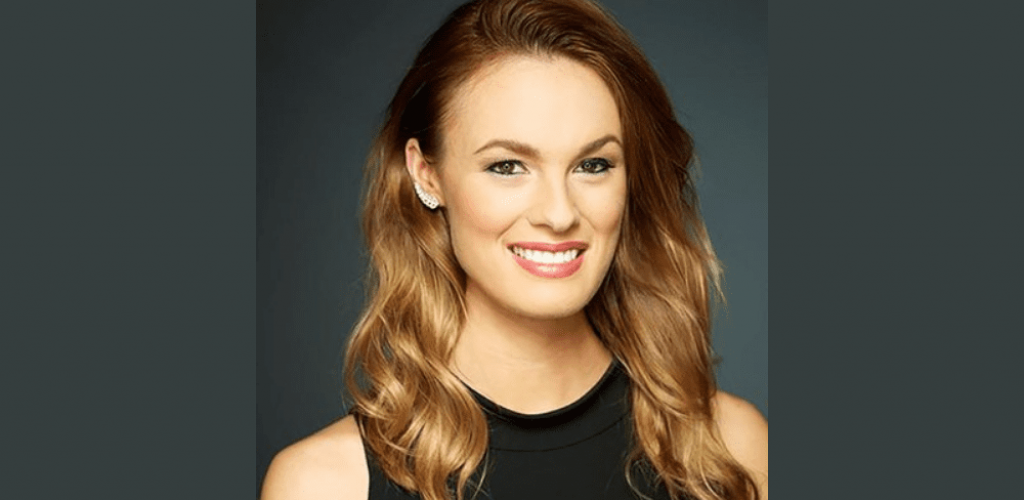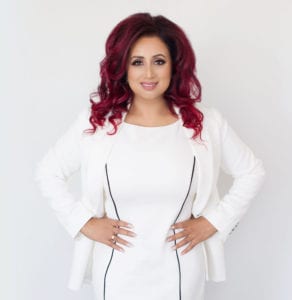Raj Girn: We continue this week’s theme of Branding and Marketing with this part 2 of a two-part series entitled ‘Why Everyone Needs To Marry Their Mission With Their Brand Identity.’ My guest is the founder of Brandwise Media and personal branding expert Kait LeDonne.
Here is Part Two of our conversation:

Raj Girn: Please welcome Kait LeDonne. Let’s just take a couple of the most common forms of silos or pillars, for want of a better word, and deep dive down a little bit. So specifically, I’m talking about, and you talked about it just in your previous answer, the personality brand and the company brand. Let’s talk a little bit about that since those are the areas that people generally go into the branding arena and that exercise. What are the differences that need to be considered when you’re looking at a personality brand versus a company brand?
Kait LeDonne: It’s really funny because I would argue fundamentally not a lot, but the irony here is the more successful a corporate brand, the more it reflects a person. You feel like a brand is your friend, I feel like I could hang out with this brand, it says something about me. And so oftentimes what you’re trying to achieve in corporate branding is what comes naturally to a personal brand. What are your values? Who are you in the world? What’s your personality? What’s your style? Then corporations try and document this as they scale so nothing gets lost in their growth. So we want to make sure we have the same personality and the same style and the same values, even as we grow and add new people and new products. Ironically, then people do this quite naturally in their daily lives. You have a certain style, the way you get dressed, you certainly talk the same way. You have the same circle of friends, you have the same values.
Corporations can seem to easily document these things, but not live them, whereas people live them quite easily but don’t document them. And so a lot of our challenge with personal brands is if we’re going to turn you into a big sensation as a personal brand, we need to document what makes you, you. So we can be very thoughtful about this. And so we actually take people through the same exercise we take corporations through. What are your leading values? What is your personality? Who is it specifically you’re trying to help, which differs from somebody in the organization? If you are the CFO of the organization, your personal brand is rooted around making sure that shareholders are getting what they need and getting accurate information. But if you are the chief HR officer, your core audience is the employees of the company.
And so, again, a lot of the same frameworks are used. Who are you trying to serve? What’s their biggest challenge? How do you uniquely help them do that? But that varies internally to an organization’s personal brand because they have different audiences depending on who they are in the company. But the big thing you want to keep in mind is a personal brand is a part of a corporate brand and yet can exist entirely independently. If Elon Musk sells Tesla tomorrow, that doesn’t define him because he’s done a really good job documenting his brand as a renegade, somebody who goes against the grain, who pushes things forward. That naturally informs all the businesses he starts Space X, Tesla. You can see how he as the founder, just like when you have children, you influence that, but if any of those brands or corporate brands go away, he’s still going to be who he is going to be. And you can see some of his personality traits in the culture in the way that those brands behave.
“A personal brand is a part of a corporate brand and yet can exist entirely independently.” ~Kait DeLonne
So why would you say that matters, Kait? I mean, personal branding has become synonymous with career success. You’ve just given the perfect example for that. Why does that matter for everyone to consider today? Is it because we all live in this 3D world? Give me your thoughts on that.
I think it depends on the position. So if you’re a CEO, personal branding, 100 per cent matters because consumers are actually more likely, I think, with something like 77 per cent more likely to buy from a product whose founder is online and has a strong personal brand. So it’s incredibly important if you’re trying to build a company, build a culture that your brand is out there and it’s not a selfish pursuit. I think a lot of founders are afraid to have a personal brand because they think it’s going to eclipse their employees or eclipse the corporate brand strategy when in reality you will always see brand equity, going back to that term, correlate to a CEO’s brand equity. So if you’re trending up on your personal brand as a CEO, the company’s brand equity is is churning up. And you can see this in a number of different examples anecdotally.
Sara Blakely and Spanx being a great one. She is now a very visible personal brand. She makes guest appearances on Shark Tank. The company performs very well. People link those two things together. You can again look at that as far as Elon Musk and any of his companies, anybody that has a strong personal brand presence, you’re likely going to see that their corporation’s brand presence is going to relate it in a positive manner. So there’s that. Now, if you are not the owner of a company, but you’re trying to build a personal brand, there’s a variety of reasons you would do this. Maybe you want to get board seats and positions. You want to make yourself extremely marketable and hold leverage for getting other positions.
I was speaking with a woman a few weeks ago and she was talking about building her personal brand. She said “I’m getting ready to sell my company. And so long my brand, cause I haven’t built one, has just been the company and now I don’t have any leverage if I want to start the next thing or really lobby for somebody to pay me more or something like that.” So make no bones about it, when you’re at the negotiating table for a position, your network can be leveraged as currency. I would love to hire somebody who had 20,000 followers who are really invested in them and might be inclined to pay them a little more, because I know that they could steer those 20,000 people to my corporation and my brand. So it’s a point of leverage and a point of freedom. You get to control the narrative of who you are versus anybody else doing that for you. And in the year 2021 we’ve never had, for better or for worse, more opportunities and tools at our fingertips to help steer that narrative.
Absolutely. So based on everything that we’ve discussed so far, Kait, what would you say are the top three reasons that any form of business, whether it’s a personality brand or all the way up to multinationals and everything in between, why would they need to incorporate brand strategy? Like top three reasons?
Well, you’re definitely going to see higher conversions, whatever that means to you. If you want to hire more people, get clear about your brand. If you want more people to buy your products, get clear about your brand. Because the more you understand how you’re helping them and what they’re truly, truly struggling with, what’s keeping them up at night that you can help. You’re going to win the hearts and minds of people which, back to where we started, is often the traditional definition of branding. Having somebody have a positive, hopefully feeling, about your brand or a certain set, determined feeling about your brand that you want to influence. So that’s number one right off the basis.
Number two, it just makes it easier to grow if you are, again, a human being and you don’t have DNA mapped out any time you’re growing, you’re going to look vastly different than you did even a few minutes ago. And so it’s the thing that helps you grow in the right direction. It’s almost your roadmap and your blueprint for making sure your company is growing in a way that is on target and consistent with how you pictured it.
And number three, it’s going to inform everything else. And that can be part of number two in terms of growth. But again, you’re going to realize that, you’re going to save a lot of money because you’re not going to spend money on marketing initiatives that actually aren’t in service of the people you’re trying to reach. And you can charge a lot more. If you have high brand equity people are willing to pay more for your products and services. We all understand why people are willing to throw down for something like a BMW or a Mercedes and do that, and even aspire to do that or overextend themselves that they don’t have the money because there is a certain brand personality and feeling that those companies try to evoke in people. So, the top three reasons you want to make sure that you’re consistent as you grow keeps everything succinct: it helps you save money, it helps more conversions, and it helps you make a lot more in terms of value in your organization.
“The top three reasons you want to make sure that you’re consistent as you grow keeps everything succinct: it helps you save money, it helps more conversions, and it helps you make a lot more in terms of value in your organization.” ~Kait LeDonne
Absolutely.
That goes for people too. Anything I just shared is as applicable to a personal brand as it is to a corporate brand. It will help you grow in the right direction in your career. It will help save you time for projects you don’t want to work on. It will help you increase value in fulfillment with the projects you do want to work on. It will help conversions, whether that is colleagues, friends, people you want to service, clients. It doesn’t matter if we’re talking to a person, a product, a corporation. Branding is going to solve all three of those things for you.
Let me ask you this then, Kait. What’s the correlation between the branding and trust? Because we all know that someone or something with a brand, especially if it’s a strong, positive brand, tends to have more people flock to it, tends to have more people wanting it. You just finished talking about that a little bit from the perspective of wanting a Mercedes or a BMW. What is that correlation between branding and trust?
If you think of the fact that the highest conversion rate would always be through a friend or a referral, this is why we all check reviews online to see what other people think, because we trust people more than we trust corporations. It goes back to what I was saying before, the more you can personify your brand and get it to the point where it imbues feelings like friendship or somebody that you really know, you’re going to convert more people. So everybody wants to do business with other people they know, like and trust. And if we break that down in terms of the brand components we were talking about, that’s impressions how much do people see you? Well, if you know who you’re trying to serve, you can show up where they are to create those brand impressions. Like, that would be shared values. Again, I like this brand because it’s valuing the same things I do. I use an Apple computer, let’s say, because I value simplicity and creativity. Apple also values those two things. So I’m going to like that brand more. And then trust. When you build up the know and the like and you make good on those commitments to them, people are going to have positive experiences and then all of a sudden you don’t need somebody they know to work for you. You almost start thinking of that brand like you would a friend, and you’re less likely to opine on whether I should or should not purchase from it.
“If you know who you’re trying to serve, you can show up where they are to create those brand impressions.” ~Kait LeDonne
Absolutely. So let me ask you this, then. If a company has a proof of concept, excellent quality products and services, great customer service, and loyalty in place. Would they still need a brand strategy, like if all of his ducks are already in a row?
I would say if all those ducks are already in a row, it’s almost impossible they didn’t have a brand strategy.
Why did I think you were going to say that?
Because this is the thing, right, like customer service. That is 100 per cent a reflection of an organization’s values. If an organization values, let’s say, cost-effectiveness or value or something to that degree, they may be less likely to really invest in customer service. It doesn’t matter. We’re a numbers-based business. What we value at the end of the day is money. So churn and burn people, it doesn’t matter. We’re in it for profit. And listen, there are businesses that operate like that for sure. I’m not even saying that’s necessarily a bad thing. Just be clear on that’s your thing. Don’t try and say that customer service is your thing and then all of your actions as a corporation go against that.
We were working with an author and I was reading her book. She’s brilliant. She owns this company called Grokker, and it’s an employee well-being platform for global workforces. And in her book, it pointed out that Enron, the company that completely collapsed and a lot of their corporate executives went to jail because of how bad that organization was, had a value of integrity, i.e., do the right thing and be ethical. Now, everything they did clearly flew in the face of integrity. So this is what you don’t want to do. And again, a lot of brands do. Here’s our values. Here’s our mission. Here’s our vision. We have it all down on this wonderful web page of our company called About us and Our Philosophy and yet we never make sure that on a daily basis, we’re calling those up and living by those things. And then you erode distrust of a consumer because you can’t just say you’re in it for something anymore. People, especially because of the internet and social media, have way more accessibility to say: no, I saw a video on Instagram saying that you have terrible customer service. I read your reviews on Google. It’s not great. You can’t just project that anymore. With all the media that’s available. People will tell the truth about your brand.
If a company has a great proof of concept, it’s probably because they identified who they want to help, solved the core breakdown that the audience was dealing with and created a product to actually solve for those things, whether they did it consciously or not. If they are making a lot of sales and they’re backing that with great customer service, whether they documented it or not, they might have been a happy accident. But at some point they’re going to if they keep scaling, it’s because their values are excellence, integrity, support, freedom, things that would really create a great customer experience. So the question to go back to it is if you have all these things, do you need a brand?
You probably have one, even if you don’t realize it, because it’s a small enough company that people just know, they’re like drinking the collective Kool-Aid. But nobody has really written down the recipe for the Kool-Aid. Once that company grows and grows very quickly, they’re going to need to put the recipe to the Kool-Aid somewhere because more and more people are going to have to start making it and drinking it. And that’s where your brand strategy, documenting all that stuff comes into play. If you’re doing it really well, you probably are doing branding in spite of yourself, but you need to take the next step and then write it down.
I just want to pick up on the story that you tell regarding Enron. What are the negatives of bad brand identity that people need to keep in mind when building out their strategy? I mean, you mentioned one not doing what you say that you’ll do. Are there any others that people need to keep top of mind when they’re looking to maybe stop being conscious of what their brand identity is, maybe they’re revaluating it because they started to go in a different direction? Or maybe those thoughts coming from that consumer, from the public, those insights that need to revisit, what their value system is like. Some of the negatives are that people that point you to, I need to reassess this.

If you’re losing customers, for sure. Before that or after that, but usually before in my experience, if you’re losing employees 100 per cent, if you’re not hiring the right type of people, you’re hiring and you’re like, gee, we really just can’t seem to get the right fit. That’s a big, big red flag right there, that you don’t have values documented or the brand clearly mapped out. So attrition of employees, customers, things like that are usually the telltale signs. The less glaring ones you’re losing money and losing people that I often see are you’re finding it confusing yourself to figure out how to talk about the product? Nobody can clearly articulate what the value parts are. You walk down the hall and grab a cup of coffee when we’re all back into the real world here soon and you ask one of your teammates, hey, what are our top five leading values? And they can’t say it or hey, what what is it that we do? And why is it that we do it so well? And you get six different answers you need to reinvest in your brand strategy.
And then you might see that there’s a target market shifting, like, again, some of the net promoter or the survey answers are coming back different from where you intended them. But if you can get ahead of it, you can beat the attrition of your clients or employees, which is the biggest red flag you need to reinvest or relook at your brand strategy, by collecting that data from both internal and external stakeholders. The biggest thing I think that I experience from having a well-documented brand strategy is clarity. And if you can’t quickly say, to go back to the Volvo example, what is it our brand means to you and not everybody has the same answer safety, then you should get even stronger with your brand strategy. Clarity wins the day. You need it internally, you need it externally, you need it for yourself. And sometimes the personal branding, that’s the hardest angle of it to get. I can’t tell you how many times an executive has hired us to work on their personal brand. And we say, what is the biggest point of value you’ve gotten from our engagement? And they say, I just finally know who I am and what I stand for. And I know I was doing it, but I couldn’t point to it or articulate it.
Wow. So powerful that that warrants me coming back to our audience and letting them know how to get hold of you Kait. For anyone that’s just joining us midstream, how can they get a hold of you?
Always LinkedIN and brandwisemedia.com
Wonderful. So say you have gotten yourself into a bit of a pickle with your brand, then you’ve gotten negative press or negative thoughts from people. What can you do? What are the things that people should be looking at immediately?
Well, a PR agent would maybe have a different answer, but from a brand perspective, I would be honest for sure. If you start to get negative feedback and authentically honest, I think in the day and age where there are performative apologies, we all know this. We see it nearly every day from some celebrity who’s gotten themselves in trouble. But the ones I would say that really, actually mean something is ownership, identifying the breakdown and identifying the impact of that breakdown on the people that you were trying to help or who had been at the effect of that breakdown. And so on a corporate level, if that is you were always valued for customer service and then your company grew so fast and customer service totally flies out the window and you can’t seem to get your arms around it and you’re getting a lot of negative feedback online, Google reviews, Yelp, whatever about negative customer service. I think the best thing you can do is say customer service has always been a core value of this organization.
As we have grown, it’s become clear to us that we have not implemented the right training practices or surveys and assessments to make sure that that pivotal thing is staying pivotal to our foundation. For the people that this impacted, we realize that this means your service wasn’t performed on time, you’ve also often seen breakdowns, we’re committed to doing better. Here’s how we’re going to compensate you and here’s how we plan to do better. But then you actually have to do better. And that means going back to the brand strategy of what is the problem we’re trying to solve for people, how do we do it really well and what are the values. And then actually collect a lot of data and monitor that in your organization. I think those are going to be really helpful in corrective brand action.
Absolutely. For those people who are just starting out in the branding game, whether they’ve been around for a while and now they are consciously looking at strategy or whether it’s someone just starting out, they know that brand strategy is important. What would you say to them in terms of the order of how they should do things from a branding perspective? I personally think they just need to hire you. How do they need to get their head around the order of things?
Every time we work with people, it’s going back to your audience. We have a very in-depth process of who are you trying to help? Where do they live? Do they have kids? What do they aspire to do? What keeps them up at night? A journal entry from their perspective. I would always say to start with the end in mind, which is who is it that wants to engage with our brands? Then what challenge or problem that’s often going to come up through doing that work are we trying to solve for them? And then how do we do it uniquely? That’s often the outcome of your values. If we really value creativity, we might deliver some solutions they wouldn’t find elsewhere.
But always the, and I know I said it at the very top of the podcast, 90 per cent of your brand work will be made clear to you if you start with the people you’re trying to help from the very beginning because the brand will start unveiling itself to you. What can’t they stand about your competition? Where do they feel stuck, frustrated, or consistently let down? As you begin to answer these really thought-provoking questions about getting radically curious of your audience, you’re going to see what products and features they’re going to value. You’re going to see how they want you to communicate with them, and that’s going to inform things like your tone and your personality. So first and foremost, and again and again and again, always come back to the who. Simon Sinek has like that wildly viral idea of starting with why, I think I’m going to write a book called ‘No, Start With Who.’
You should!
I’ll let you know. I’ll stop it around and see if any publisher wants to pick it up.

I love that. And it beautifully full-circles our conversation, Kait. We started with this and now we’re closing things out with this. So let me ask you this. When hiring a branding expert like yourself, what are the criteria that they should be considering to ensure that they are making the decision for the right reasons? What do people need to know?
It’s a really good question. I would, of course, start with have you worked with other people in my industry before? I don’t think that’s always really necessary if you have a good brand strategist, but it certainly can’t hurt. Let’s say you’re a coach. You want to understand that people have dealt with the nuances of that before. You want to ask them what their methodology to branding is. If they can’t map out their process to branding that’s going to be a challenge and I’m not going to be feeling optimistic about where your investment is going.
One of the biggest things I learned from reading the book ‘Traction’ by Gino Whitman, which I encourage everybody to read if you’re starting or growing a business, is a documented process to how you do what you do so well. And I feel like a lot of us marketers, and I’ve certainly been guilty about it so this is not me talking down to my fellow colleagues in the industry. Oh, it’s an art. It’s not a science, sure. But there’s a process to get there and there’s a framework to get there. And you need to be able to define how it is you’re going to achieve the outcome right off the bat. If you can’t do for yourself what you report to do for others, that’s going to be a problem. So I would also look at their brand, you know, share with me, please, your mission and vision and values. But if somebody is not telling you, they’re going to help you get clarity around your target audience, your mission, your vision, your values, and your process, then, you know from the bat that it may be an engagement you shouldn’t be seriously considering.
Absolutely. Oh, my gosh. It just warrants like a whole other show Kait. So many questions I have for you.
Let’s do that show. We can do that one.
I think we’re definitely going to do that because I’m not going to let you go that easily. I’m going to bring you back. But I want to ask you any final thoughts that you want to leave the audience with, that perhaps, maybe we haven’t touched upon. I know this a lot, but how would you maybe encapsulate what we talked about and leave them with something to help us close this off?
There’s a quote from a gentleman that is slipping my mind, his name, but the quote is not. I gave a talk about branding to the United States Air Force around this time last year, right before everything shut down for the quarantine. And I closed out the presentation after finding a quote that said “To command is to serve, nothing more, nothing less.” I always tell people to brand is to serve, nothing more, nothing less. Don’t get caught up in me, me, me. At the end of the day, and this can really be like a commentary on life, but it’s true because brands are reflections of humans. It’s so much more fulfilling and powerful to be in service to others than it is to be fully just absorbed in yourself. So to brand is to serve. You always want to start from a selfless perspective. And if you do that, I guarantee you’re going to outperform so much of your competition who is not approaching it from a place of selflessness and servitude. Why else are we in business? Why else are we living if not to form connections and help other people along the way?
“Brands are reflections of humans. It’s so much more fulfilling and powerful to be in service to others than it is to be fully just absorbed in yourself. So to brand is to serve.” ~Kait LeDonne
Amen, sister. Folks, you’re at the end of the show, and, you know as you heard, there’s a lot to be thought about when you’re thinking about branding. It’s another one of those kinds of kitschy words that are thrown out there when everybody talks about my brand. But now you know, that you’ve come to the end of the show, truly what it takes and this is just the beginning, what it takes to actually consider what your intention is with the brand and the power of what your brand should be if you allow it to be.
Oftentimes, and you guys hear me say this all the time, I always say that for every aspect of my life, at least for the last 20 years, I have had some sort of a mentor, consultant, coach, expert, be a part of every single aspect and every layer of how I function as a human. And you’ve also heard me say that I like who I am. I really like who I am because I’ve done the work to figure out those pieces that didn’t serve me. I have done the work to figure out what it is that I bring to the table. And I’m still figuring this out just as you are. There is no better way to decipher that than to allow someone else to get inside of your head, your heart, your mind, your body, your soul. And I feel that branding is that important for you.
Kait, you are an absolute sweetheart. Every single thing that you’ve said really resonated with my spirit. And you notice that I hardly ever stepped in to talk to you because I was taking it all in. Like, here I am. I have been helping people with their brands in different capacities for the last almost 20 years from a media promotions side because that’s my wheelhouse. And there’s so much that you’ve opened my mind to where I think to myself, I need to hire you. Like I need to get out of my way and let someone like you in that can truly maybe help me go to the next level. And folks, this is what I’m saying. I’m very transparent.
You guys know how I think, I always put it out there and I’m putting it out there. If you think that you don’t need to work on your brand every single day, I hope that this hour with Kait has really changed your mind on that. It’s really important to sit with and I really hope that you enjoyed this show. This has just been mind-blowing for me. Kait, you are absolutely incredible. Thank you so much for joining and for serving. You are your brand. Here you are serving people with so many valuable insights and knowledge and it begs so many other questions, which I will pick your brain on. But for now, thank you so much for joining us. It’s been a pleasure.
Thank you Raj, and thank you for allowing me the opportunity to be with all of you. It really is something that is so near and dear to my heart. And please, please LinkedIn with me because I love to see how all these brands progress and how you are getting your word and your work out into the world.
Thank you so much for staying until the end, guys. I really hope you enjoyed this show and will action the many insights that were shared. If any of you doubt the power of leveraging brand strategy in business, I hope Kait and I were able to swing you over to our side. If you don’t know where to start, I would love for you to contact Kait on LinkedIn or at the Brandwisemedia.com website, or even hit me up at Consult with Raj Girn or TheOpenChestConfidenceAcademy.com, so either of us can steer you in the right direction.
If you found this show to be helpful I’m so glad. I would love your support by subscribing to this podcast. On your Apple and Android platforms search The Transform Your Confidence Show, our YouTube channel at The Open Chest Confidence Academy, and if you’re an avid reader like I am, we’ve also transcribed every podcast into a blog which you can access at TheOpenChestConfidenceAcademy.com/media/our-media. And also please hop over to our private Facebook group at Transform Your Confidence, where there are networking opportunities as well as knowledge and resources about mindset, media, communications, branding, marketing, leadership and advocacy for busy executives and entrepreneurs who are seeking to elevate the quality of their life. And as always, thank you for tuning in and I look forward to seeing you in our next episode. And until then, take care of yourself.
To contact Kait LeDonne: LinkedIn. Instagram, Twitter, Facebook











